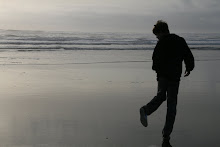Wikipedia negotiates between community and notions of truth
Digital World J412: Spring 2007, Bish Sen
What does an encyclopedia that absolutely anybody can edit- even your grandma, your cousin, a stranger at the library- imply about the conception of truth in information that exists in the modern digital world? It seems an idealistic proposition, to place all our bits and pieces of knowledge in a free, accessible, changeable format by a group effort at do-it-yourself. A person may access this encyclopaedia and decide to contribute information that is irrefutably true to them, or at least that they believe is true, and post it whether they are mistaken or not. What is idealistic about it is the underlying expectation that, with enough people posting, false content will be weeded out by a process quite like attrition.
The Wiki technology, a sort of open source programming which can be edited by anyone who can access it with a web browser, has tremendous creative potential. Some of the advantages that this encyclopaedia has are cheaper production (all of it’s writing is done by volunteers, c.f. crowdsourcing), breadth of content, and speed of turnover. Still, the information volunteered is not always correct – the encyclopaedia is always a work in progress.
Wikipedia has witnessed the birth a new form of vandalism, which it defines as “any addition, removal, or change of content made in a deliberate attempt to compromise the integrity of Wikipedia.” Most common are the addition of vandalism, “page-blanking,” and “bad (or good) jokes or other nonsense.” Wikipedia will ban you from their servers if you deliberately commit this sort of vandalism. It is noted that this does not include “good-faith attempts to contribute,” even if they are misguided or fundamentally incorrect. Wikipedia itself warns users to be aware, suggesting that older articles have had more time to be edited over, and newer ones are more likely to contain misinformation and vandalism.
So is this encyclopaedia a democratic one? Only as far as the governments of it’s contributors. Near the end of 2006, the site blocked anonymous posting from an i.p. address for 12 hours from which it had received “a large volume of spam and vandalism…” it turned out, that address belonged to the nation of Qatar. In Qatar, there is only one high speed internet service provider; thus, all anonymous users have the same address. As soon as this became clear, Wikipedia removed the block. Said Florence Devouard, chair of the Wikimedia foundation “None of us is against any country…we wish to allow the maximum number of people, from everywhere.”
Some of the entries have been placed under special protection due to a degree of controversy surrounding them which has caused them to attract a high level of bad-faith vandalism: entries on topics such as Islam, for example. After 9-11, it is easy to imagine such content being manipulated out of rage and ignorance. Wikipedia does employ editors- and encourages you to correct entries you see in error.
http://en.wikipedia.org/wiki/Wikipedia:Vandalism
http://en.wikipedia.org/wiki/Wikipedia:About
http://news.bbc.co.uk/2/hi/technology/6224677.stm
Subscribe to:
Post Comments (Atom)



No comments:
Post a Comment